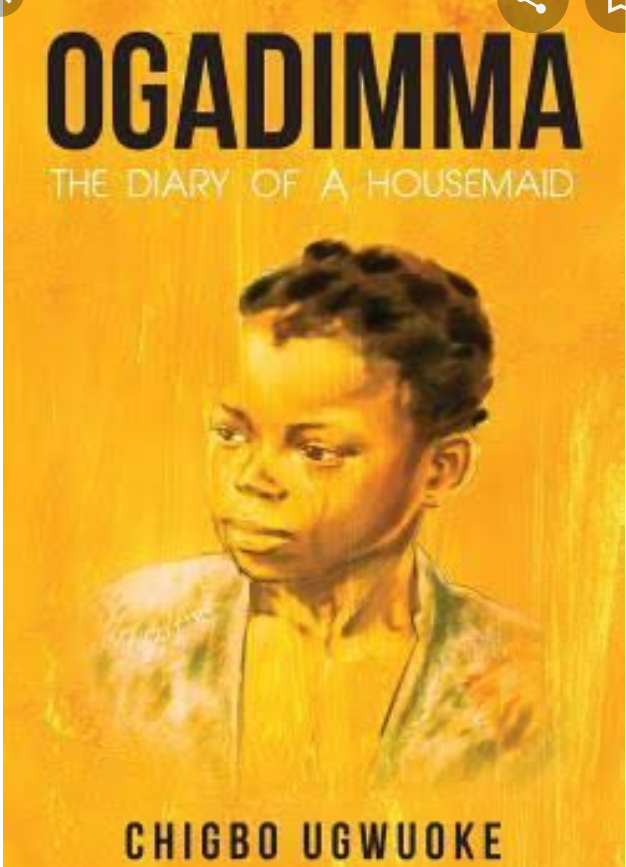14/09/2020
Good morning class, I wish you a beautiful week as you start to get ready for school resumption
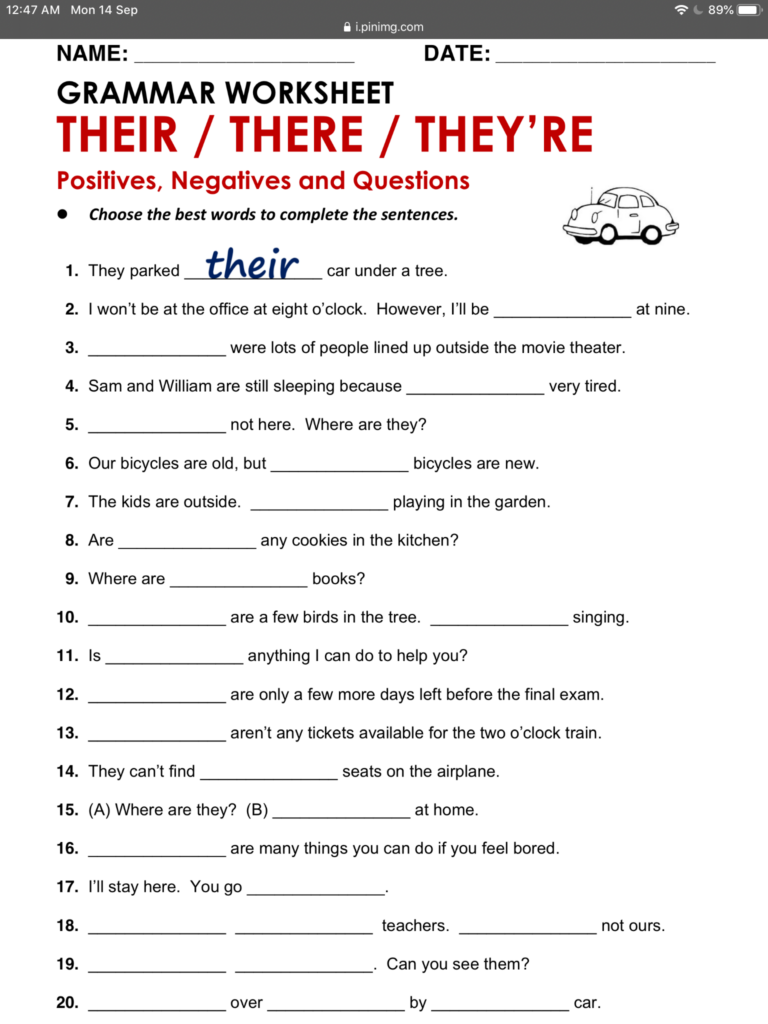
CORRECTION
- B
- C
- B
- A
- B
- A
- A
3/09/2020
Good morning class. Feel free to go through your text for answers.
OGADINMA ( Chapters 1 & 2)
- Ogadi is graduating as ——(a) an engineer (b) a medical doctor (c) a pharmacist (d) a nurse
- The fiance of Ogadi is a/ an —– (a) engineer (b) medical doctor (c) accountant (d) pharmacist
- Ogadi’s fiance is —- (a) Prince (b) Emeka (c) Julius (d) Johnson
- —- must be tendered before Ogadi collects her certificate (a) Clearance slip (b) Library card (c) A lot of money (d) A letter
- Ogadi is —- years old when her mother runs away from Use. (a) 2 (b)3 (c) 4 (d) 5
- Ngozi’s youngest daughter is —- (a) Ego (b) Mebe (c) Ogadi (d) Ada
- —- takes away Ogadi from Mabel (a) Ngozi (b) Mama (c) Use (d) Baba Ogwukaraka
31/08/2020
Good morning everyone, welcome back to a new week.
NARRATIVE ESSAY
A narrative is a form of writing that tells a story. It can be essays, fairy tales, movies, and jokes (real or imaginary). Narratives have five elements: plot, setting, character, conflict, and theme. Writers use narrator style.
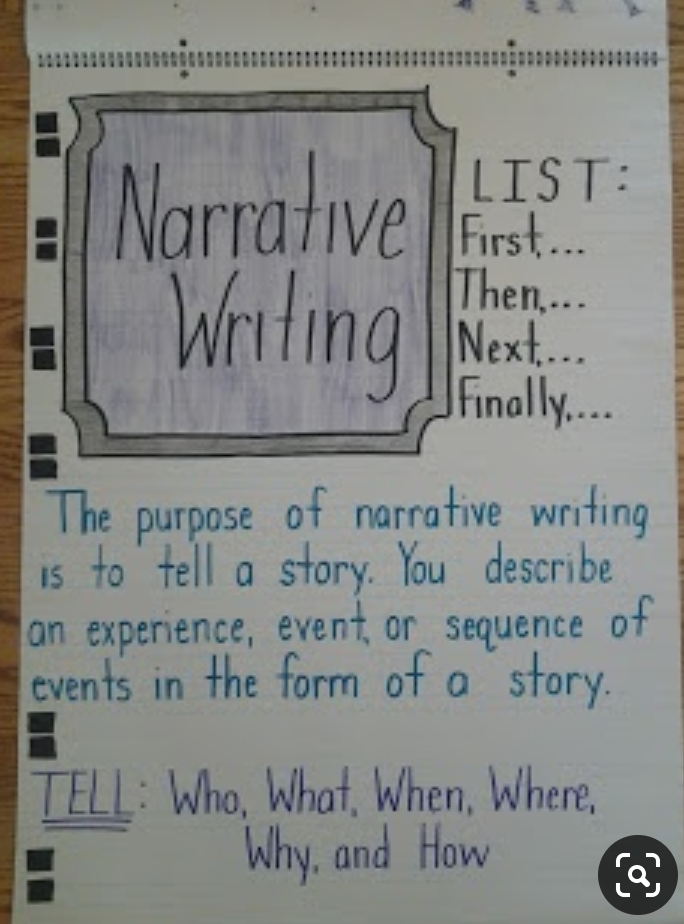
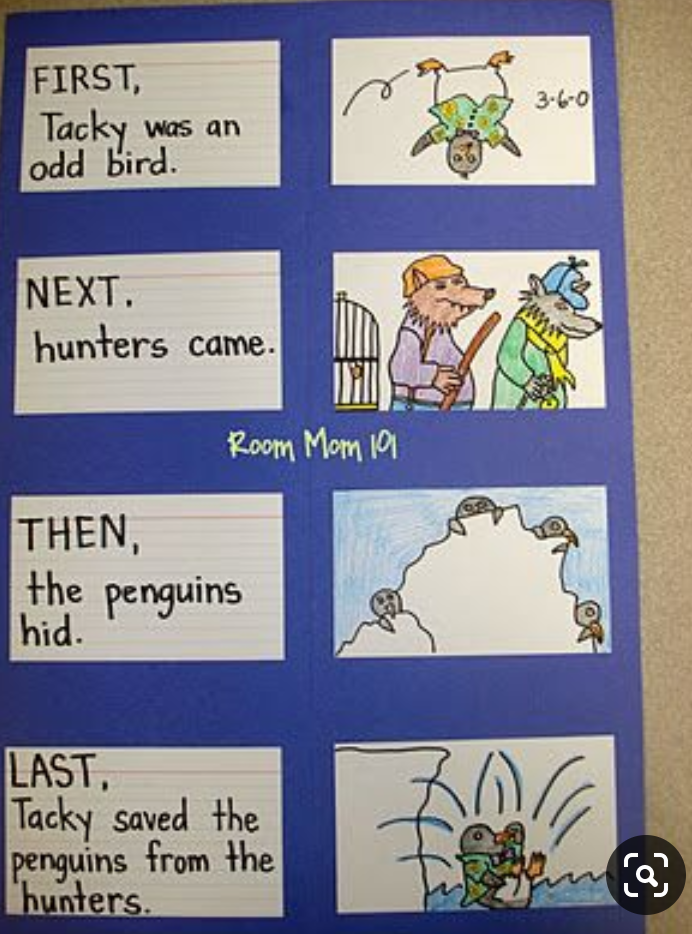
Study these pictures and write your own short essay. Write it in a sheet of paper (colourful if possible), snap it and kindly post in this form below.
27/8/2020
Hello Students,
Correction for
24/8/2020
- B 2. B 3. A 4 .D
5 .A 6. C 7. C 8 .A - A. 10. C 11. B
- D 13. A 14. B
- B
Below are some
Questions on Chinelo Ifezulike’s
“THE COSTLY MISTAKE” - The principal
Observes that
………….
A. last term the
students were
unruly. B . last
term most of the
students
performed woefully
C. last term few
students
performed poorly
D. last term all the
students performed
poorly. - What figure of
speech is “shun
laziness and
idleness like the
plague “?
A . simile B. smile
C. metaphor
D. hyperbole - Which of the
teachers call the
students my
Children?
A. Mrs Ezinne
B. Mrs Francis
Egbe
C. Mr Jude ldeh
D. Mr Nwokedi - Who is the
maths teacher?
A. Mr Ideh B. Mr
Nwokedi C. Mrs
Ezinne D. Mrs
Nwannah - According to Mr
Nwokedi, there is
no formula for
success that does
not involve……..
A. dedication to
duty. B. tenacity
C. hard work
D. perseverance - How many tips
did Mr Nwokedi
give the students
on how to pass
examination?
A. four B . five
C. six D. Seven - What stage is
crucial for any
student who
wants to be
successful?
A. The university
B. teenage stage
C. Secondary
school
D. Primary school - All these
except…….. are
on how to pass
examination
A. work and pray
B. prepare a study
time table
C. be determined
to have good
grades
D. Organize a
study group - Mr Nwokedi is
loved by the
students because
………..
A. he works very
hard
B. he takes the
side of the
students
C. he is
conscientious
teacher
D. he is a father to
all
Besides our
parents could not
afford to buy the
the required books
but we still made
it. - Who made the
statement?
A. Mr Edoga
B. Mr Nwokedi
C. Mrs Nwannah
D. Mrs Ezinne - Who is the
integrated
science teacher?
A. Mr Nwokedi
B. Mr Edoga
C. Mrs Nwannah
D. Mr Okonkwo - What did a
student write
as answer to
a Math question?
A. a joke
B. Bible stories
C . a movie stories
D. an account of
a football match Kindly write only your answers in the
form provided below.
24/8/2020
Hello Students, how
are you doing?
Below are Revision Questions on Chinelo Ifezulike’s THE COSTLY MISTAKE.
- Cross country
races are held ……
A. weekly
B. fortnightly
C. monthly
D. at the end of the
term - Where were the
extra curricular
activities held
A. Dele Giwa Hall
B. beside
Moshood Abiola
C. the school hall
D. Atame Hall - What will remain
unforgettable for
Udoh, Uchenna
and Daniel?
A. their first social
gathering
B. the day bullying
stopped in the
school.
C. their first term
exam
D. there football
competition - What building
has the most
stories?
A. Empire State
Building
B. Cocoa House
C. Skyscrapers
D. A library - Who asked this
question?
A. Bomason
Bruhaha
B. Ben Onwumere
C. Onyekachi
Nwosu
D. Daniel Udoh - Who asked the
first question
during the social
gathering
A. Daniel B. Udoh
C Onyekachi
D. Buma - Who came out
first for jokes?
A . Bome
B. Okwuchi
C. Daniel D. Udoh - Who was the
first JSS1
Student to come
out?
A. Daniel B. Udoh
C. Uchenna
D Wilson - Who made the
Joke about two
governors ?
A. Kanayo
B. Okwuchi
C Steve D. Daniel
10 . What is the
first secondary
school in
Nigeria?
A DMAS
B. Government
College ,Afikpo
C. CMS Grammar
School, Lagos
D. Baptist College,
Abeokuta - When was the
Federal Capital
moved from
Lagos to Abuja
A .1990 B . 1991
C . 1992 D .1994 - Which state
is the food
basket of Nigeria?
A. Enugu B. Borno
C . Edo D. Benue - Who wins the
singing
competition?
A. Chinedu Jones
B . Joseph Okoli
C . Uche Ifezue
D. Emeka Enwezor - The dancing
competition was
won by ……..
A . Daniel B. Lucky
C. Emeka
D. Chinedu - Who joined
discussion group
of Uchenna,
Daniel and Udoh?
A. Emeka
B Wilson
C .Nnamdi
D. Lucky
Kindly write only your answers in the
form provided below.
- Cross country
races are held ……
A. weekly
B. fortnightly
C. monthly
D. at the end of the
term - Where were the
extra curricular
activities held
A. Dele Giwa Hall
B. beside
Moshood Abiola
C. the school hall
D. Atame Hall - What will remain
unforgettable for
Udoh, Uchenna
and Daniel?
A. their first social
gathering
B. the day bullying
stopped in the
school.
C. their first term
exam
D. there football
competition - What building
has the most
stories?
A. Empire State
Building
B. Cocoa House
C. Skyscrapers
D. A library - Who asked this
question?
A. Bomason
Bruhaha
B. Ben Onwumere
C. Onyekachi
Nwosu
D. Daniel Udoh - Who asked the
first question
during the social
gathering
A. Daniel B. Udoh
C Onyekachi
D. Buma - Who came out
first for jokes?
A . Bome
B. Okwuchi
C. Daniel D. Udoh - Who was the
first JSS1
Student to come
out?
A. Daniel B. Udoh
C. Uchenna
D Wilson - Who made the
Joke about two
governors ?
A. Kanayo
B. Okwuchi
C Steve D. Daniel
10 . What is the
first secondary
school in
Nigeria?
A DMAS
B. Government
College ,Afikpo
C. CMS Grammar
School, Lagos
D. Baptist College,
Abeokuta - When was the
Federal Capital
moved from
Lagos to Abuja
A .1990 B . 1991
C . 1992 D .1994 - Which state
is the food
basket of Nigeria?
A. Enugu B. Borno
C . Edo D. Benue - Who wins the
singing
competition?
A. Chinedu Jones
B . Joseph Okoli
C . Uche Ifezue
D. Emeka Enwezor - The dancing
competition was
won by ……..
A . Daniel B. Lucky
C. Emeka
D. Chinedu - Who joined
discussion group
of Uchenna,
Daniel and Udoh?
A. Emeka
B Wilson
C .Nnamdi
D. Lucky
Kindly write only your answers in the
form provided below.
20/08/2020
CORRECTION of the previous lesson
VOCABULARY QUIZ
Hospital
- clinic
- emergency
- doctor
- family doctor
- waiting room
- nurse
- appointment
- checkup
- ambulance
- outpatient
- inpatient
- insurance
- wheelchair
- medicine
- operation
Countries and Languages
- Iceland
- Russia
- Chile
- Korea
- United Kingdom
- France
- Nigeria
- Canada
- China
- Germany
- India
- Brazil
- Egypt
- Japan
- Mexico
Good morning today everyone. I hope you had a peaceful night rest. Here is another round of quiz for you
Parts of Speech Quiz
Determine which part of speech has been boldly written
1. I bought a beautiful dress at the mall.
a. preposition
b. adjective
c. noun
2. What did she ask you to do?
a. conjunction
b. preposition
c. pronoun
3. I left my shoes under the kitchen table.
a. adjective
b. preposition
c. pronoun
4. If we finish our work quickly we can go to the movies.
a. adverb
b. conjunction
c. verb
5. On Saturdays I work from nine to five.
a. verb
b. preposition
c. adverb
6. I want to go to a university in the United States.
a. adjective
b. preposition
c. noun
7. I’m sure I’ve met your girlfriend before.
a. verb
b. preposition
c. interjection
8. Well, I don’t think I’ll be home before 6.
a. interjection
b. preposition
c. pronoun
9. Andy knocked on the door but nobody answered.
a. adverb
b. adjective
c. conjunction
10. After lunch let’s go out for a coffee.
a. pronoun
b. preposition
c. verb
17/08/2020
Good morning class, I hope you had a restful weekend. Welcome back to an interesting class of quizzes.
VOCABULARY QUIZ
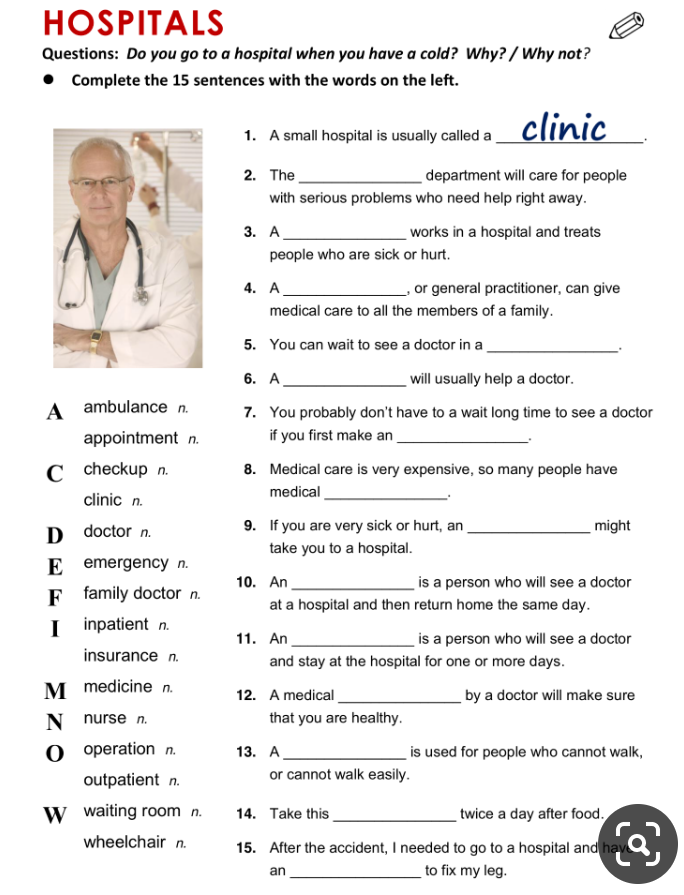
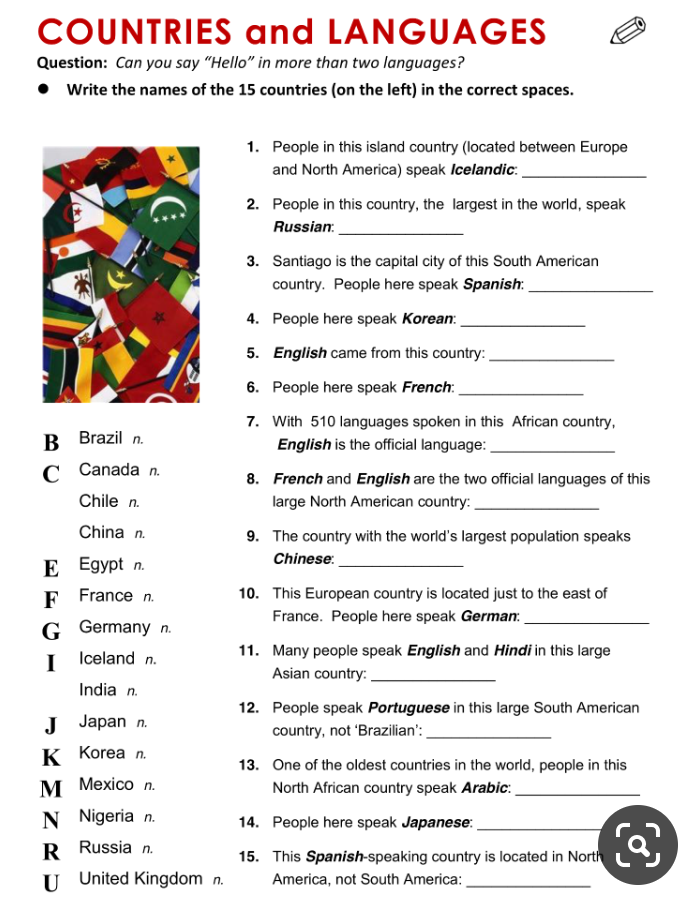
Correction for
13/8/2020
- A 2. A 3. B 4. B5D 6. B. 7. B 8. A 9. A 10
13/8/2020
Hello Students,
Correction for
10/8/2020
- A 2. C 3 .A 4. D
- A 6. A 7. D 8. B
9 .A. 10. C
CORRECTION for 6/8/20
Homograph
Something in a pencil, or what a CEO of a business does for her company. _____lead________
The reverse direction, or the part of your anatomy that has a spine. _____back________
A pass that allows you to do something, or to give permission to someone. ________permit_____
When a broadcast is made as it is happening, or the opposite of dead. _______live______
Sixty seconds, or something very small. __minute___________
The way someone behaves, or to lead an orchestra. ____conduct_________
The opposite of something, or a brand of shoes. ______nothing_______
The break kids get around lunch time, or to shrink. __short (break)______
A beautiful smelling flower, or past tense of ascending.
____a scent_________
The edge of the river, or a place where you store your money. _bank__
Below are more
Revision exercises
on Chinelo Ifezulike’s “THE COSTLY MISTAKE”
- I will be lawyer,
…….. said
A. Michael B. Daniel
C. Uchenna D. Obah - …….is posted to
Ogunike Boy”s High School?
A. Michael B. Daniel
C. Uchenna D. Obah - “I will be an
Engineer”,. ………
said preening
himself.
A. Udoh B . Uchenna
C. Daniel D. Michael - Daniel intends to
be ………..
A. doctor
B. pharmacist
C. engineer
D. lawyer - On getting the
result slip, Daniel”s
father goes to…….
A. pay the school
fees B . see the
principal C. rally
round support
D. collect the school’s prospectus - What promise
does Daniel”s
father make to
him?
A. that he will reward him well If
he excels B. that
he will train him to
the university level
C. that he will get
him a good job
D. that he will
Provide his needs
in school. - Who says the
fear of the seniors
is the Daniel’s
beginning of
wisdom?
A. An SS 2 student
B. Wisdom C. Eduh
D. Uboh - Daniel and Udoh
are posted to…….
A Osadebe House
B. Ken Saro – Wiwa
House C. Niger
House
D. Dele Giwa House - .,. ….. was the
senior student who
gave Daniel and
Udoh a taste of
boarding life.
A. Temptation
B. Hurricane
C. Charles
D. Obasele - Uchenna was
posted to…….
A. Benue House
B. Dele Giwa House
C. Ken Saro – Wiwa
House
D. Niger House
Hope you have read your two literature texts scheduled for the third term given to you. If you have not, please, do.
Kindly write only your answers in the form provided below.
10/8/2020
Hello Students, how are you doing?
Below are Revision Questions on Chinelo Ifezulike’s
“THE COSTLY MISTAKE”
- Who is the main
character of the
novel?
A. Daniel B . Udoh
C . Uchenna
D. Michael
2 . What are Daniel
and his friends
waiting for?
A . the arrival of a
long-lost friend
B . the return of their
Parents C. the
results of the
common entrance
examinations
D . the result of the
Junior school
certificate
examinations.
3 . What evidence
do we have that
Daniel is
hardworking?
A. he is found
reading a novel
B. he is working on
his father’s farm
C. he helps his
mother at home
D . he helps his
younger ones .
- What primary
school did Daniel
and his friends
attend?
A. Imperial Nursery,
Primary School
B . Little Angel
Nursery and
Primary School
C . Metropolitan
Nursery and
Primary School
D . Little Stars
Nursery and
Primary School - What makes
Udoh so sure that
they will pass?
A. he prepares well
for the
examinations
B. without God all
things are
possible
C . he does not
believe in failure
D. the reward of
hard work is
success. - Who informs
them that the
results of the
common entrance
examinations are
out?
A . Michael’s
younger sister
B. Uchenna’s
brother
C . the principal
D. the school’s
counselor - All these EXCEPT
……… attract
Daniel and his
friends to secondary School
A. the important
books carried
about by the
students
B. the way the
students walk
about the
community.
C. the neat uniforms
of the students
D. the exciting
stories about life
in the secondary school.
8 . Who were posted
to Metropolitan
Grammar School?
A. Daniel, Michael,
Uchenna
B. Daniel, Udoh,
Uchenna
C. Michael, Obah .
Uchenna
D. Daniel, Ubah,
Uchenna
- …….wants to be a
doctor?
A. Obah B. Udoh
C. Daniel D. Michael - ……..is posted
to St Charles
Special Science
School?
A. Michael B. Daniel
C. Obah D. Uchenna
Kindly write only your answers in the
form provided below
06/08/2020
CORRECTION
- I can’t _______ your gift.
a. accept
b. except
Answer accept - The _______ of our school is very tall.
a. principle
b. principal
Answer principal - _______ not my fault.
a. It’s
b. Its
Answer It’s - I _______ the food out.
a. threw
b. through
Answer threw - The _______ is very good today.
a. whether
b. weather
Answer weather - Everyone walk down this _______ please.
a. aisle
b. isle
Answer aisle - Which _______ are you taking this year?
a. course
b. coarse
Answer course - This is the _______ time that I’ve told you about this.
a. forth
b. fourth
Answer fourth - I love the _______ of fresh flowers.
a. sent
b. scent
Answer scent - He hired a _______ to clean his room.
a. made
b. maid
Answer maid
Good morning everyone, welcome back. Homograph is the continuation of the previous lesson, I hope you have fun doing your two class activities.
HOMOGRAPH
Homograph is each of two or more words spelled the same but not necessarily pronounced the same and having different meanings and origins.
Examples
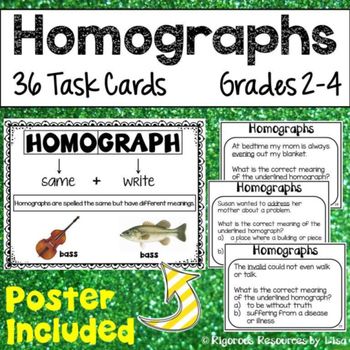
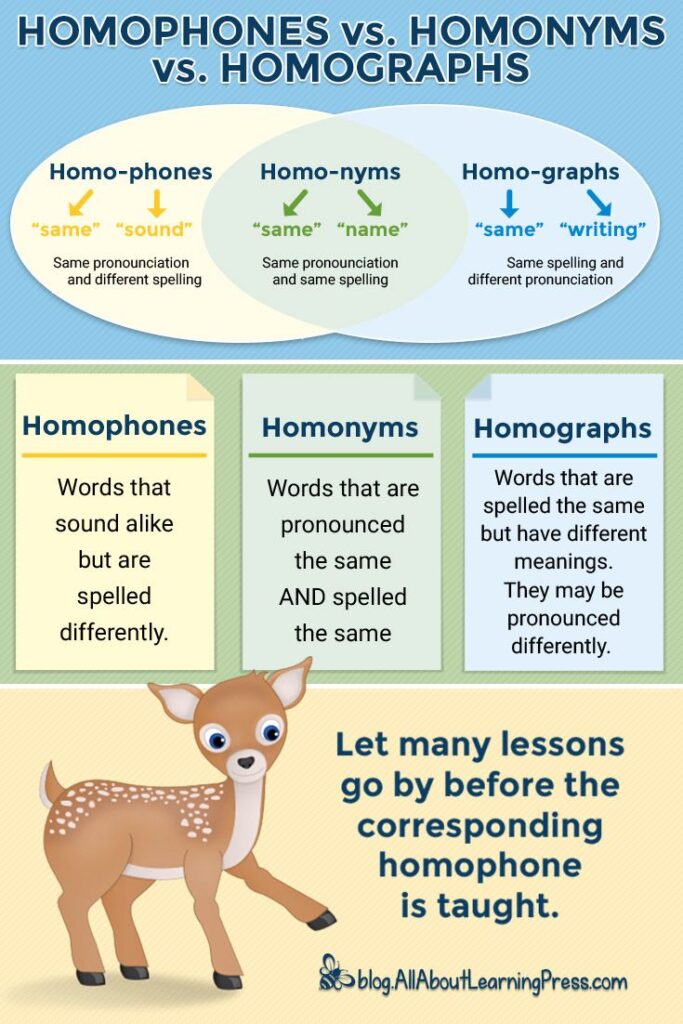
Homograph unlike homonym and homophone is spelt the same way but pronounced differently, though with different meanings too.
CLASS ACTIVITIES
A
Try out a flash card of your own by illustrating with pictures a pair of words each of homophone, homonym and homograph.
Example
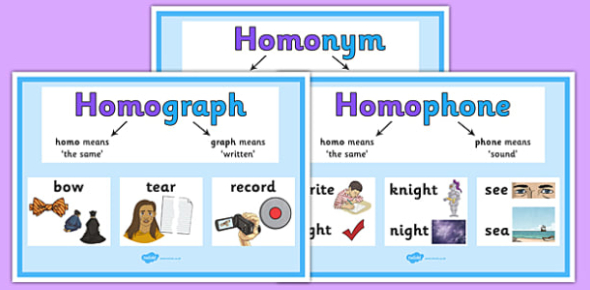
Kindly snap and insert your pictures here
B
Write the homograph for each clue.
- Something in a pencil, or what a CEO of a business does for her company. _____________
- The reverse direction, or the part of your anatomy that has a spine. _____________
- A pass that allows you to do something, or to give permission to someone. _____________
- When a broadcast is made as it is happening, or the opposite of dead. _____________
- Sixty seconds, or something very small. _____________
- The way someone behaves, or to lead an orchestra. _____________
- The opposite of something, or a brand of shoes. _____________
- The break kids get around lunch time, or to shrink. _____________
- A beautiful smelling flower, or past tense of ascending.
_____________ - The edge of the river, or a place where you store your money. _____________
Kindly fill in your answers correctly in this form.
3/8/2020
Good morning and happy new month
HOMOPHONES AND HOMONYMS IN ENGLISH
A homophone is a word that is pronounced the same as another word but differs in meaning. A homophone also differ in spelling as in rain, reign, and rein.
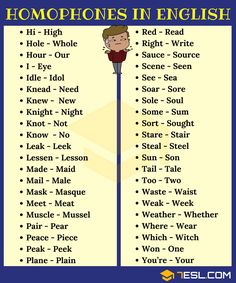
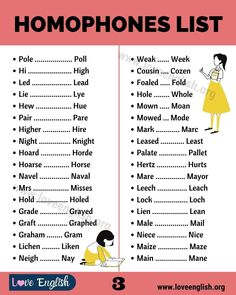
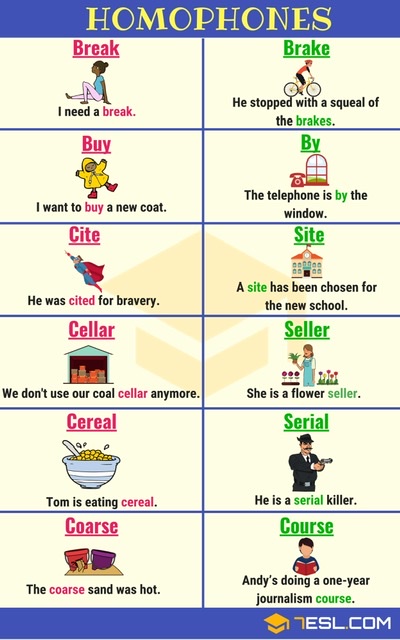
A homonym on the other hand has same pronunciation and same spelling but with different meanings as in rose (flower) and rose (past tense of rise).
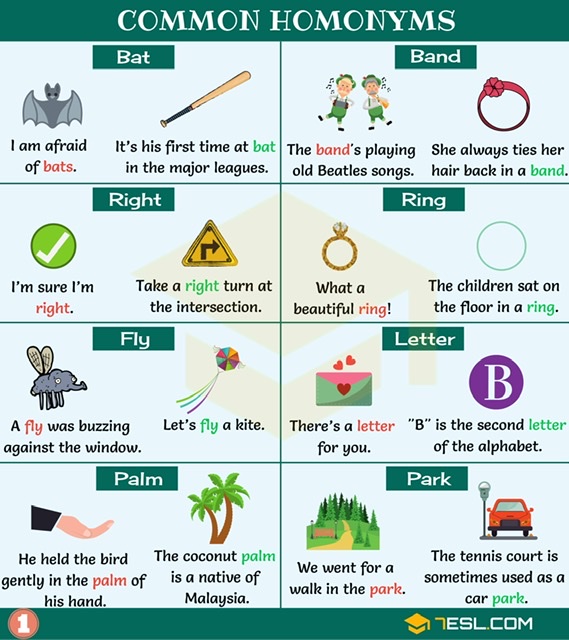
Exercise
- I can’t _______ your gift.
a. accept
b. except - The _______ of our school is very tall.
a. principle
b. principal - _______ not my fault.
a. It’s
b. Its - I _______ the food out.
a. threw
b. through - The _______ is very good today.
a. whether
b. weather - Everyone walk down this _______ please.
a. aisle
b. isle - Which _______ are you taking this year?
a. course
b. coarse - This is the _______ time that I’ve told you about this.
a. forth
b. fourth - I love the _______ of fresh flowers.
a. sent
b. scent - He hired a _______ to clean his room.
a. made
b. maid
Kindly answer your questions in this form
30/7/2020
Hello Students,
Correction for 27/7/2020
- inspector….(b)
- deck ..(d,)
- runway..(a)
4.eggs…..(b)
- sockets… (b)
Below are the exercises for today’s class.
What is the simple past of these
verbs?
1.fly
- shake
- bear
- grow
- light
- weave
- wake
- tear
- stick
10.bleed - pay
- hit
- lead
- have
- make
Kindly write only your answers in the form provided below
Correction of the previous lesson.
- metaphor
- Hyperbole
- Simile
- personification
- Metaphor
- personification
- irony
- Understatement
27/7/2020
Hello Students, how
are you ?
Below are the exercises today’s
class.
Find the best word to complete each
sentence:
1) During the journey, the………
examined every passenger’s ticket.
(a) buffer (b) inspector. (c) driver
(d) station master
( e) junction.
(2) The sea was so
stormy that no passengers were
allowed on the…….
(a) hold (b) anchor
(c) berth (d) deck
(e) buoy
(3) Our plane landed
and taxied along the…….. to the airport buildings.
(a) runway (b)hanger (c)track
(d) cockpit (e) airline. B
(4) Mrs Edu is a
poultry farmer, so
her family eats plenty of ………
(a) pork (b) eggs
(c) ewe (d) calf (e)
beef
(5) When the lights
in her bedroom
suddenly went out,
Mr Okudu changed
the wire in one of the……..
(a) cables (b) sockets (c) fuses
(d) bulbs (e) hinges
23/7/2020
Good morning class, we thank the almighty for making us to see today. It shall be a wonderful one with good achievements. Let’s get started.
Correction
- Sweden
- were more obese
- Later than
- No, there are only hypotheses
- No
FIGURES OF SPEECH
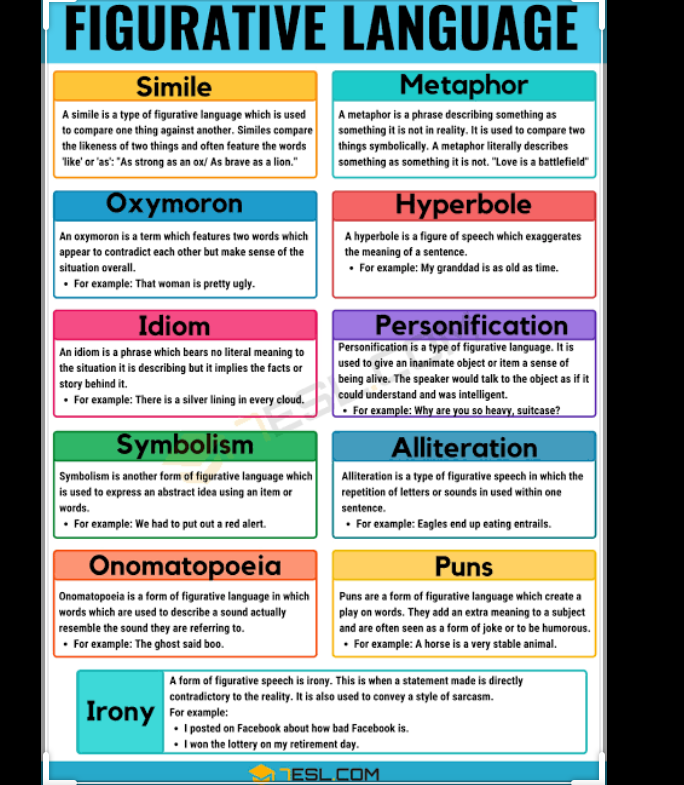
Questions
- 1. She is the apple of my eye.
- A. Simile
- B. Metaphor
- C. Hyperbole
- 2.Father Anthony cried a river of tears.
- A. Simile
- B. Personification
- C. Hyperbole
- 3.My mother is like a star in the sky.
- A. Simile
- B. Metaphor
- C. Personification
- 4.The trees are dancing together with the wind.
- A. Personification
- B. Simile
- C. Metaphor
- 5.You are the sunshine of my life.
- A. Metaphor
- B. Personification
- C. Hyperbole
- 6.Necessity is the mother of invention.
- A. Eponymy
- B. Personification
- C. Oxymoron
- 7.The Titanic was said to be unsinkable but sunk on its very first voyage.
- A. Paradox
- B. Irony
- C. Understatement
- 8.He said it was just a small scratch referring to a large dent.
- A. Understatement
- B. Synecdoche
- C. Irony
Good morning again class. It shall be a wonderful week for us by God’s grace. Please, do not forget to always take responsibilities.
READING COMPREHENSION
A cause of obesity in young children
A new study has linked a later bedtime with an increased risk of obesity for kids — although the researchers say parents shouldn’t rush to put their preschoolers to sleep earlier as a result.
Instead, concerned moms and dads should focus on maintaining a regular routine when it comes to scheduling meal and bed times, said Dr. Claude Marcus, a professor of pediatrics at the Karolinska Institute in Sweden and an author of the study, which published Tuesday in the journal Pediatrics.
The research, which was part of a wider study on obesity, focused on 107 children in Sweden, with 64 of the children having a parent who classified as overweight or obese.
The researchers monitored each child’s weight, height and waist circumference from ages one to six; all of the children had similar measurements when the study started. Sleep was measured for seven consecutive days once a year for the length of the study by using a tracker worn on the child’s wrist.
They found that children who habitually went to sleep late — defined by the researchers as past 9 p.m. — had a wider waist and higher BMI (body mass index) by the end of the study.
“This late bedtime was one factor that really stood out. It was associated with increased weight,” said Marcus. “However, what we can see is [only] an association. If you put your kids to bed earlier, would it change anything? That’s something we don’t know.” Marcus suggested that staying up beyond 9 p.m. could be one sign of an overall lifestyle that puts kids at greater risk of being overweight, rather than their weight gain being directly connected to their bedtime.
He noted that kids’ bedtimes around the world vary widely — with kids in places like Spain and some parts of Asia habitually staying up much later than the study’s cut-off time.
“My personal hypothesis is that this is more of a marker of a more irregular life,” he said. In a linked commentary on the research, Dr. Nicole Glaser and Dr. Dennis Styne, both pediatric endocrinologists at UC Davis Health in Sacramento, California, said it was possible that obesity and inadequate sleep might be due to other influences, such as “excess screen time, inadequate exercise, or less vigilance overall about health habits on the part of the family.”
(c) CNN 02/17/2020
Exercises
1. The study mentioned in the article was conducted in ____________.
The UK
Sweden
Canada
2. The study found that children who went to bed late generally ____________.
were more obese
were less obese
had about the same level of obesity as the children who went to bed early
3. The article mentions that kids in Asia and Spain generally go to bed ____________ kids in Sweden.
earlier than
at roughly the same time as
later than
4. Did researchers find a concrete reason for the link between going to bed late and obesity?
Yes
The article doesn’t say
No, there are only hypotheses
5. Were seven year olds included in the study?
No
Yes
The article doesn’t specify the age of kids that took part in the survey
Kindly fill your answers in this form below.
16/7/2020
Correction on Quantifiers
- lot – A
- Every-B
- many-C
- Each-D
- a few-E
- several-D
- .lots-C
- enough-B
- more-A
- most-B
16/7/2020
Hello Students, how are you doing?
Correction for 13/07/2020
- (b) – ‘nowadays’
- (a) – all farmers knew
- (D) – ‘would starve because the crops could never
ripen’. - _____
- (b) – when it did not rain for a long time.
- (b) – farmers have watched the sky.
Today’s Topic: Quantifiers
A) Look at these words and phrases:
a few, a lot of , both,
each, enough, every,
few, lots of, many more , most, several,
some .
These words and phrases are called
Quantifiers. We use
them with countable
nouns to show how
many things, people,
animals we are referring to .(we use
the numerals,one, two, three, to show
exactly how many.)
B) We use each and every with singular
nouns, but we use the others with plural nouns, e.g. :
(I) When the principal comes into the classroom, every pupil stands up.
(ii) Each State in Nigeria has its own
capital city.
(iii) A few books were on the table.
(iv) Both men were
angry.
(v)A lot of birds live
in those trees.
Note that a few means “not many’ and that few (without a) means
” a very small number of “
Examples: (I) A few people watched the
football match.=not
many.
(ii) Few people watched the football
match. =not as many as expected.
Exercise
From the list below,
choose the best word or phrase for
each gap:
By seven o’clock a…..1… of people were in the market
…..2…..stall was open and already……3…. shoppers’ bags were
full …..4….. stall- holder was busy: only.. …5…. were without……6.. customers. They all
had. …..7…..of goods to sell- certainly…….8.. goods for one day’s
trading. There were
……9……. people at
Auntie’s stall than at any other because…..10……
of her prices were
reasonable.
- (A) lot (B) lots
(C) many
(D) several
(E) some - (A) Some
(B) Every
(C) Many (D) Both
(E) All - (A) each (B) every
(C) many (D) one
(E) lots - (A) Both (B) Many
(C) Some
(D) Each (E) Most - (A) each (B) every
(C) several (D) lot
(E) a few - (A) both (B) each
(C) every
(D) several
(E) lots - (A) many
(B) several
(C) lots (D) more
(E) enough - (A) both
(B) enough
(C) several
(D) some
(E) many - (A) more (B) most
(C) a lot of
(D) lots of
(E) many - (A) few (B) most
(C) every
(D) each (E) both
Kindly write only your answers in the form provided below.
13/07/2020
Hello Students, I’m happy to be with you again on this platform. How are you doing? Hope you are keeping safe.
CORRECTION
- Sita as well as Ram likes fruit.
- The owner of these houses is very clever.
- There are eleven players in the ground.
- Rice and curry is his favourite dish.
- ‘Great Expectations’ is a good book.
- Both of the books require careful reading.
- Neither Tina nor his friends are going there.
- A doctor as well as a nurse is working in the hospital.
- A doctor and a nurse are working in the hospital.
- A number of books are missing.
Today’s Topic: Reading Comprehension
Sub-topic: Watching the sky
Read this passage carefully and answer the questions below.
Today —- and it was the same in the past —— most people spent most of their lives finding food, clothes and somewhere to live. They had no time to take any interest in things outside their own family, their own village or town, or their country.
Nevertheless, for thousands of years even the poorest and most hardworking farmers have watched the sky. Why? Because the sun, clouds, moon and stars were part of their daily life. They knew that, without the sun, they and their families would starve, for the crops would not ripen. They watched the sky for clouds because rain does not fall from a cloudless sky, and without rain, their crops would die.
Which is right ——— a, b, c, or d?
- Here today means
(a) ‘this very day’.
(b) ‘nowadays’.
(c) ‘this week’.
(d) ‘this year’. - By They knew the writer means that
(a) all farmers knew.
(b) the majority of people knew.
(c) the poorest farmers knew.
(d) the most hardworking farmers knew. - By would starve, for the crops would not ripen the
writer means
(a) ‘would starve before the crops would ripen’.
(b) ‘would starve waiting for the crops to ripen’.
(c) ‘would starve because the crops had not ripened
already’.
(d) ‘would starve because the crops would never ripen’. - The writer explains why ………… important to farmers.
(a) the sun, clouds, moon and stars were
(b) the moon was
(c) the sun and clouds were
(d) the stars were - The writer says that the crops died
(a) before they ripened.
(b) when it did not rain for a long time.
(c) when it rained.
(d) when the sky was cloudless. - Which of these groups of words is the most
important?
(a) they have no time
(b) farmers have watched the sky.
(c) the crops would not ripen.
(d) their crops would die.
Kindly write only your answers in the form provided below.
9/7/2020
Good morning everyone, I’m happy to be with you once again.
CORRECTION for 6/7/20
- Man and woman (are/is) complementary to each other.
- Plenty of mangoes and bananas (are/is) available in this season.
- A dictionary and an atlas (is /are) from the library.
- Cats and dogs (does/do) not get along.
- A lot of houses (have/has) collapsed in the storm.
- A large sum of money (is/was) stolen.
B
- The girl or her sisters (watch, watches) television every day.
- Rob and his brothers (doesn’t, don’t) like sports.
- His classmates (study, studies) before a test.
- One of the cookies (is, are) missing.
- A lady with 10 cats (live, lives) in that big house.
- Mumps (is, are) very serious.
- The committee (decide, decides) when to adjourn.
- Our team (is, are) the best.
- Everybody (enjoy, enjoys) a good song.
- Either (is, are) suitable.
Continuation of write in your English note
CONCORD
- When there is one subject and more than one verb, the verbs throughout the sentence must agree with the subject. Example: Interviews are one way to collect data and allow researchers to gain an in-depth understanding of participants. Example: An assumption is something that is generally accepted as true and is an important consideration when conducting a doctoral study.
- When a phrase comes between the subject and the verb, remember that the verb still agrees with the subject, not the noun or pronoun in the phrase following the subject of the sentence.Example: The student, as well as the committee members, is excited.Example: The student with all the master’s degrees is very motivated.
- When two or more singular nouns or pronouns are connected by “or”or “nor,” use a singular verb.Example: The chairperson or the CEO approves the proposal before proceeding.
- When a compound subject contains both a singular and a plural noun or pronoun joined by “or”or “nor,” the verb should agree with the part of the subject that is closest to the verb. This is also called the rule of proximity.Example: The student or the committee members write every day.Example: The committee members or the student writes every day.
- The words and phrases “each,” “each one,” “either,” “neither,” “everyone,” “everybody,” “anyone,” “anybody,” “nobody,” “somebody,” “someone,” and “no one” are singular and require a singular verb. Example: Each of the participants was willing to be recorded.Example: Neither alternative hypothesis was accepted.Example: I will offer a $5 gift card to everybodywho participates in the study.Example: No one was available to meet with me at the preferred times.
- Noncount nouns take a singular verb.Example: Education is the key to success.Example: Diabetes affects many people around the world.Example: The information obtained from the business owners was relevant to include in the study.Example: The research I found on the topic was limited.
- Some countable nouns in English such as earnings, goods, odds, surroundings, proceeds, contents, and valuables only have a plural form and take a plural verb.Example: The earnings for this quarter exceed expectations.Example: The proceeds from the sale go to support the homeless population in the city.Example: Locally produced goods have the advantage of shorter supply chains.
- In sentences beginning with “there is” or “there are,” the subject follows the verb. Since “there” is not the subject, the verb agrees with what follows the verb.Example: There is little administrative support.Example: There are many factors affecting teacher retention.
- Collective nouns are words that imply more than one person but are considered singular and take a singular verb. Some examples are “group,” “team,” “committee,” “family,” and “class.”Example: The group meets every week.Example: The committee agrees on the quality of the writing.
CLASSWORK
Correct the following sentences:
- Sita as well as Ram like fruit.
- The owner of these houses are very clever.
- There is eleven players in the ground.
- Rice and curry are his favourite dish.
- ‘Great Expectations’ are a good book.
- Both of the books requires careful reading.
- Neither Tina nor his friends is going there.
- A doctor as well as a nurse are working in the hospital.
- A doctor and a nurse is working in the hospital.
- A number of books is missing.
Kindly provide your answers in this form
06/07/2020
Good morning and welcome to another beautiful day. May the Lord continue to be our shepherd.
ENGLISH CONCORD
Concord is an agreement between two things. English concord is the grammatical agreement between two parts of a sentence that is an agreement between the subject and the verb of a sentence.
You remember the meaning of concord when you remember the phrase ‘in one accord’.
Relax and watch this two and half minutes video. Formulate a note from it.
CLASS WORK
- Man and woman (are/is) complementary to each other.
- Plenty of mangoes and bananas (are/is) available in this season.
- A dictionary and an atlas (is /are) from the library.
- Cats and dogs (does/do) not get along.
- A lot of houses (have/has) collapsed in the storm.
- A large sum of money (is/was) stolen.
Choose the correct verb in these sentences.
- The girl or her sisters (watch, watches) television every day.
- Rob and his brothers (doesn’t, don’t) like sports.
- His classmates (study, studies) before a test.
- One of the cookies (is, are) missing.
- A lady with 10 cats (live, lives) in that big house.
- Mumps (is, are) very serious.
- The committee (decide, decides) when to adjourn.
- Our team (is, are) the best.
- Everybody (enjoy, enjoys) a good song.
- Either (is, are) suitable.
Kindly fill your answers in this form below.
Correction for
2/7/2020
1.(a) that (b)those
( c) that (d) these
(e) this
- (a) our (b) your
(c) their (d) your
(e) their - (a) my (b) your
(c) his (d) her
2/7/2020
Hello Students, how are you doing?
Correction for 29/6/2020
(1) b (2) c (3) c (4)a (5)c
Today’s Topic: Revision on this/these/that/those+noun.
We use this/these+noun to refer to things near to us and things that we are mentioning now.
We use that/those+noun to refer to things that are not so near or to things we mentioned before or to things that we are going to mention later.
So, that/those+noun
often mean the same as the other+noun.
EXERCISES
- Complete these sentences with (this, that, these or
those):
(a) If this bag is yours, whose is…….
bag?
(b) If these shoes are Lawal’s, whose are……. shoes?
(c) Musa, open……..
window on the other
side of the room, please.
(d) The policeman is
shopping…….cars,
but he is letting the ones over there go.
(e)Obi, come here and sit on…….. chairs. - Complete these
sentences with (our,
your or their):
(a) , We all like……
new teacher.
(b) Of course, you want……. team to win
(c) They were carrying cans of water on……. heads.
(d) Do you both like sugar in ……..tea?
(e) The market women closed…….stalls because of the rain. - Complete these
sentences with (my,
your, his, her or its):
(a) I lent Ade……. best blouse and she
won’t give it back to me.
(b) May I borrow……
pencil,Amina?
(c) Edem’s upset: he’s lost…..cap.
(d) Fatima can’t read without…… glasses.
Kindly write only your answers in the
form provided below.
29/6/2020
Hello students, how are you? Hope you are keeping safe.
CORRECTION for the last class
PUNCTUATION Answer Key
Q1. Punctuate the following sentences.
a) i like playing with my friends sandy sunny sameer
Ans. I like playing with my friends-Sandy, Sunny and Sameer.
b) we went through the smoky mountains, near shimla on our way to leh
Ans. We went through the smoky mountains near Shimla, on our way to Leh.
c) myfavourite soap is pears and my favourite toothpaste is pepsodent
Ans. My favourite soap is Pears and my favourite toothpaste is Pepsodent.
d) i’m a catholic and that’s why i go to st.joseph’s school
Ans. I’m a Catholic and that’s why I go to St. Joseph’s School.
e) my friend priya speaks german and she is teaching me some words
Ans. My friend, Priya speaks German and she is teaching me some words.
f) he was honest sincere hard working
Ans. He was honest, sincere and hard working.
g) hindusmuslimssikhschristians live together in India
Ans. Hindus, Muslims, Sikhs and Christians live together in India.
h) long ago in a town in Switzerland there lived a famous man called william
Ans. Long ago, in a town in Switzerland, there lived a famous man called William.
i) akbar the greatest of the mughal emperors ruled wisely
Ans. Akbar, the greatest of the Mughal emperors, ruled wisely.
j) tanya said to ila rahul is a nice guy
Ans. Tanya said to Ila, “Rahul is a nice guy.”
Today’s Topic: Revision on Reading
Comprehension
Read this: Then Choose the right answer for each question.
The Price of 7Up.
The bus pulled into the bus station of a small town .I was terribly thirsty . I jumped out and rushed up to the vendor .
“7UP, please, quickly!”
“Sorry, only Coke and Pepsi .”
I heard another vendor call “7 UP. ” I
Pushed roughly past two other customers . The man told me he had just sold his last bottle of 7 UP .
Foolishly, I was determined to get 7Up and unlucky I saw another vendor on the other side of the car park .I ran over to him, bought a bottle and took two wonderful, mouthfuls of cool liquid, before walking slowly back to the bus.
But where was it? It had gone! I had lost my luggage and my place in the bus-but not my money.
(1)Why did the writer jump out?
(a) He was tired of sitting .
(b)He was thirsty.
(C) He wanted to see the town .
(d)He wanted to enjoy fresh air.
(2) What was the first vendor selling?
(a)He was selling 7Up .
(b) He was selling either Coke or Pepsi
(c) He was selling both Coke and Pepsi.
(d) He was selling bottles.
(3) Why didn’t the writer buy a bottle of 7Up from the second vendor?
(a) The second vendor was selling Pepsi.
(b) Other customers pushed past him .
(C) The vendor had just sold his last bottle of 7 UP.
(d) The second vendor was not selling 7Up.
(4) What do you think the cool liquid was?
(a) I think it was 7Up .
(b I think it was water .
(C)I think it was Coca-Cola .
(d)I think it was a bottle .
(5) Why do you think, had the writer not lost his money? He had not lost his money because
(a) it was in the bank .
(b) he had not got any .
(C) it was in his pocket .
(d)it was given to the vendor
Kindly write only your answers in the form below .
CORRECTION for the last lesson
- D
- A
- A
- B
- D
- C
- D
- C
- C
- A
Continuation of punctuation
Quotation or Speech Marks (“….”)
Quotation or speech marks are used to:
- To mark out speech
- When quoting someone else’s speech
For example:
My grandpa said, “Share your chocolates with your friends.”
“George, don’t do that!”
“Will you get your books out please?” said Mrs Jones, the teacher, “and quieten down!”
It is worth noting that to report an event back does not require speech or quotation marks.
For example:
Mrs Jones told the pupils to take out their books and to quieten down.
Hyphen (-)
The hyphen is used to link words together.
For example:
- sub-part
- eighteenth-century people
- second-class post
- gender-neutral
- non-verbal
The hyphen is also used when a word is split between two lines. The hyphen should be placed between syllables at the end of the upper line and indicates to the reader that the word will be completed on the next line.
Brackets ( )
Brackets always come in pairs ( ) and are used to make an aside, or a point which is not part of the main flow of a sentence. If you remove the words between the brackets, the sentence should still make sense.
For example:
“The strategy (or strategies) chosen to meet the objectives may need to change as the intervention continues.”
Square Brackets […]
A different set of square brackets [ ] can be used:
- to abbreviate lengthy quotations
- to correct the tense of a quotation to suit the tense of your own sentence
- to add your own words to sections of an abbreviated quotation.
To abbreviate lengthy quotations
The major classes that exist in Western societies are an upper class […]; a middle class […] and a working class […]
Slash (/)
Many people use the slash instead of or, and etc., but this is not always helpful to the reader. There is, however, a modern convention in gender-neutral writing to use ‘s/he’.
Capital Letters
The correct use of capital letters is also important in writing. This shall be discussed later.
20/6/2020
Good morning everyone, I hope you are still keeping to the rules of keeping safe.
Correction for 18/6/2020
1.(a) The match (b) The people
(c) The window
2.(a)a newspaper (b) no object
(c) the elephant
3.(a)hit (b) was telling (c)have written (d) open
Today’s topic
PUNCTUATION
Punctuation is the system of signs or symbols given to a reader to show how a sentence is constructed and how it should be read.
Sentences are the building blocks used to construct written accounts. They are complete statements. Punctuation shows how the sentence should be read and makes the meaning clear.
Every sentence should include at least a capital letter at the start, and a full stop, exclamation mark or question mark at the end. This basic system indicates that the sentence is complete.
The Basic Signs of PunctuationThe Basic Signs of Punctuation
- the comma ,
- the full stop .
- the exclamation mark !
- the question mark ?
- the semi-colon ;
- the colon :
- the apostrophe ‘
- quotation marks “ ”
- the hyphen –
- brackets ( ) or [ ]
- the slash /
The Comma (,)
The comma is useful in a sentence when the writer wishes to:
- pause before proceeding
- add a phrase that does not contain any new subject
- separate items on a list
- use more than one adjective (a describing word, like beautiful)
For example, in the following sentence the phrase or clause between the commas gives us more information behind the actions of the boy, the subject of the sentence:
The boy, who knew that his mother was about to arrive, ran quickly towards the opening door.
Note that if the phrase or clause were to be removed, the sentence would still make sense although there would be a loss of information. Alternatively, two sentences could be used:
The boy ran quickly towards the opening door. He knew that his mother was about to arrive.
Semi-colon (;)
The semi-colon is perhaps the most difficult sign of punctuation to use accurately. If in doubt, avoid using it and convert the added material into a new sentence.
As a general rule, the semi-colon is used in the following ways:
When joining two connected sentences.
For example:
We set out at dawn; the weather looked promising.
or
Assertive behaviour concerns being able to express feelings, wants and desires appropriately; passive behaviour means complying with the wishes of others.
The semi-colon can also be used to assemble detailed lists.
For example:
The conference was attended by delegates from Paris, France; Paris, Texas; London, UK; Stockholm, Sweden; Colombo, Sri Lanka; and Mumbai, India.
Colon (:)
The colon within a sentence makes a very pointed pause between two phrases. There are two main uses of the colon:
It is most commonly used when listing.
For example:
She placed the following items into the trolley: beer, fruit, vegetables, toilet rolls, cereals and cartons of milk.
Or it can be used within a heading, or descriptive title.
For example:
Human Resource Management: Guidelines for Telephone Advisers
Apostrophe (’)
The apostrophe, sometimes called an inverted comma has two main uses.
The apostrophe indicates possession or ownership.
For example:
The girl’s hat was green, (girl is in the singular).
This shows the reader that the hat belongs to the girl.
The girls’ hats were green, (girls in this instance are plural, i.e. more than one girl, more than one hat).
This indicates that the hats belong to the girls.
Another use of the apostrophe is to indicate where a letter is omitted:
For example:
We’re going to do this course. (We are going to do this course.)
Isn’t this a fine example of punctuation? (Is not this a fine example of punctuation?)
The time is now 7 o’ clock. (The time is now 7 of the clock)
Note that a common mistake is to confuse its with it’s.
It’s indicates to the reader that a letter has been omitted.
For example:
It’s a lovely day is an abbreviated way of saying: It is a lovely day.
Enjoy this video
Punctuation marks exercise.
This exercise will test your understanding of all kinds of different punctuation marks, particularly commas, colons, semi-colons and apostrophes.
Select the correctly punctuated sentence.
| 1 | a)Spain is a beautiful country; the beache’s are warm, sandy and spotlessly clean. b)Spain is a beautiful country: the beaches are warm, sandy and spotlessly clean. c)Spain is a beautiful country, the beaches are warm, sandy and spotlessly clean. d)Spain is a beautiful country; the beaches are warm, sandy and spotlessly clean. |
| 2 | a)The children’s books were all left in the following places: Mrs Smith’s room, Mr Powell’s office and the caretaker’s cupboard. b)The children’s books were all left in the following places; Mrs Smith’s room, Mr Powell’s office and the caretaker’s cupboard. c)The childrens books were all left in the following places: Mrs Smiths room, Mr Powells office and the caretakers cupboard. d)The children’s books were all left in the following places, Mrs Smith’s room, Mr Powell’s office and the caretaker’s cupboard. |
| 3 | a)She always enjoyed sweets, chocolate, marshmallows and toffee apples. b)She always enjoyed: sweets, chocolate, marshmallows and toffee apples. c)She always enjoyed sweets chocolate marshmallows and toffee apples. d)She always enjoyed sweet’s, chocolate, marshmallow’s and toffee apple’s. |
| 4 | a)Sarah’s uncle’s car was found without its wheels in that old derelict warehouse. b)Sarah’s uncle’s car was found without its wheels in that old, derelict warehouse. c)Sarahs uncles car was found without its wheels in that old, derelict warehouse. d)Sarah’s uncle’s car was found without it’s wheels in that old, derelict warehouse. |
| 5 | a)I can’t see Tim’s car, there must have been an accident. b)I cant see Tim’s car; there must have been an accident. c)I can’t see Tim’s car there must have been an accident. d)I can’t see Tim’s car; there must have been an accident. |
| 6 | a)Paul’s neighbours were terrible; so his brother’s friends went round to have a word. b)Paul’s neighbours were terrible: so his brother’s friends went round to have a word. c)Paul’s neighbours were terrible, so his brother’s friends went round to have a word. d)Paul’s neighbours were terrible so his brother’s friends went round to have a word. |
| 7 | a)Tims gran, a formidable woman, always bought him chocolate, cakes, sweets and a nice fresh apple. b)Tim’s gran a formidable woman always bought him chocolate, cakes, sweets and a nice fresh apple. c)Tim’s gran, a formidable woman, always bought him chocolate cakes sweets and a nice fresh apple. d)Tim’s gran, a formidable woman, always bought him chocolate, cakes, sweets and a nice fresh apple. |
| 8 | a)After stealing Tims car, the thief lost his way and ended up in the chief constable’s garage. b)After stealing Tim’s car the thief lost his way and ended up in the chief constable’s garage. c)After stealing Tim’s car, the thief lost his way and ended up in the chief constable’s garage. d)After stealing Tim’s car, the thief lost his’ way and ended up in the chief constable’s garage. |
| 9 | a)We decided to visit: Spain, Greece, Portugal and Italy’s mountains. b)We decided to visit Spain, Greece, Portugal and Italys mountains. c)We decided to visit Spain, Greece, Portugal and Italy’s mountains. d)We decided to visit Spain Greece Portugal and Italy’s mountains. |
| 10 | a)That tall man, Paul’s grandad, is this month’s winner. b)That tall man Paul’s grandad is this month’s winner. c)That tall man, Paul’s grandad, is this months winner. d)That tall man, Pauls grandad, is this month’s winner. |
18/06/2020
Hello students, hope you are keeping safe?
Correction for 15/06/2020
(1) A (2) C. (3) B (4) A (5) B (6) B (7) A (8) B (9) B (10) C
Today’s Topic: Revision on Subjects, Verbs and Objects
A) The Subject of a sentence or a clause is either the noun ( with any determiner or adjectives that go with it) or the pronoun which refers to the person or thing that does something e.g
a) The old woman filled the pot.
b) Some houses were damaged.
c) They laughed at him.
B) The Verb in a sentence or clause is the word or phrase that expresses an action e.g
a) The hunter shot the bird.
b) They were looking for the thief.
c) The match will be played on Saturday.
C) The Object of a sentence or a clause is the noun (with any determiner or adjectives that belong to it) or the pronoun which refers to the person or thing affected by the action of the Subject e.g
a) The hunter shot the bird.
b) They are looking for the thief
c) They laughed at him
ASSIGNMENT
1) Underline the Subject in these sentences.
a) The match was cancelled
b) The people clapped
c) The window was broken
2) Underline the Objects, IF ANY, in each of these sentences.
a) He was reading a newspaper
b) It had been raining
c) They killed the elephant
3) Underline the Verbs in the sentences.
a) The lorry hit the wall.
b) The old man was telling a story.
c) I have written a latter to uncle Ibrahim.
d) Open your books.
Kindly write only your answers in the form below and copy the note online in your English notebook.
15/06/2020
Good morning students, how are you today? How was your weekend?
Correction for 11/06/2020
My brother lost the keys of the house. He tried to climb in through the window. He could not do so, why? He was too fat. However, his nephew was very slim. Very easily, he climbed in and opened the door.There are six capital letters in the passage.
Today, we shall be looking at conjunction.
TOPIC: CONJUNCTIONS
Conjunctions are words that are used to join one word or group of words to another.
The commonest conjunctions are: and, but, as in the following sentences.
- The headmaster and two teachers came in and sat down.
- Some spectators were seated but others were standing.
There are many other words or phrases that are used to join word or group of words. E.g also, though, although, therefore, as a result, while, when, because, in order to, as well as, either…….or, until.
TYPES OF CONJUNCTIONS
(a). Conjunctions that indicate contrast:
(i) Although I am poor, I am proud.
(ii) Ngozi is quite intelligent but she is lazy.
(b). Conjunctions that show the result of an action:
(i) As a result of bad weather the flight was cancelled.
(ii) He came late so he was punished.
(c) conjunctions that show choice:
(i) Either you or the boy is to be held responsible.
(ii) Would you like a book or a pen?
(d) conjunctions that indicate reason for an action:
(i) The student came late because it rained.
(ii) I sat quitely in class as I was new in the school.
(e) Conjunctions that link two actions or events going on simultaneously:
(i) The wife was cooking in the kitchen while the husband was reading.
(ii) I jumped up for joy when I heard the news.
ASSIGNMENT
From letter A-D, select the conjunction which will most correctly fill the blank space in each sentence.
- Pauline was unable to talk………..she was yearning to. (A) although (B) despite (C) because (D) since
- You must come tomorrow…………..you want this book (A) otherwise (B) although (C) if (D) before
- We were very sad………….we saw the accident. (A) as (B) when (C) while (D) in case
- Let’s wait here………….the rains stop. (A) until (B) unless (C) although (D) after
- I hope to visit my sisters………….I am in London. (A) for (B) when (C) while (D) unless
- Mary studied very hard…………she would pass the test. (A) thus (B) so that (C) before (D) because
- Will you eat rice…………you will prefer yam? (A) or (B) but (C) and (D) when
- She doesn’t like the man………… married him all the same. (A) since (B) but (C) if (D) though
- This school is for the rich. You can attend…………..you are wealthy. (A) unless (B) if (C) whether (D) where
- This family has been good. They have welcomed the girl………….she were their daughter. (A) because (B) since (C) as if (D) if
Kindly write only your answers in the form below and copy the note online in your English notebook.
11/06/2020
Good morning students. How are you? It’s nice having you again on this platform. Here are the correction for our last lesson on 8/06/2020
CORRECTION
- Students
Cakes - Coach
Cowardice
Field - Dishonesty
Pauline - Chief Kola
Asaba - Nile
- Sight
- Ade
English language - Taiwo
classroom - Children
field
teacher - Market
people
Today we shall be revising the Capital letters
CAPITAL LETTERS
Capital letters must begin a statement e.g My book is neat.
Capital letters must begin a question e.g Where are you going?
Capital letters must begin an exclamation e.g Put the book there!
Capital letters are also used to begin proper nouns such as:
Names of people e.g Bisi, Ali, Ade.
Names of places e.g Nigeria, Lagos, Kano.
Names of months e.g April, August, September.
Names of subjects e.g English language, Agricultural Science, Social Studies.
Names of rivers e.g River Niger, Mississippi River, River Nile.
Days of the week e.g Tuesday, Friday.
Tittles e.g Mrs, Dr, and Alhaji.
Words that refers to religion must begin with capital letters e.g Christian Religion, Islamic Religion, Traditional Religion.
ASSIGNMENT
Write this paragraph, starting each sentence with a capital letter.
my brother lost the keys of his house. he tried to climb in through the window. he could not do so, why? he was too fat. however, his nephew was very slim. very easily, he climbed in and opened the door.
How many capital letters are there in the passage?
Kindly write only your answers in the form below and copy the note online in your English notebook. Thank you.
8/6/2020
Good morning students. I am happy to have you on this platform. I hope you are having fun with the e-learning classes. Please make good use of this opportunity.
Join us on WhatsApp through this link. Please, when you join, tell us your name, class and school. Thank you. https://chat.whatsapp.com/J62I7lu7v63EjQWIzdIklg
The literature texts for this term are to be read from home please. Please, note that this is mandatory. Ogadinma: The Diary of a Housemaid by Chigbo Ugwuoke and Save the African Womb by Nicole Chinelo. Tell your friends and make sure you finish reading them before the school resumes.
This is the picture of one of the books
CORRECTION of the last lesson
NOSEC Workbook
- on
- at
- on
- about
- for
- to
- of
- with
- under
- inside.
NOSEC TEXTBOOK
a) at
b) for
c) of
d) on
e) on
f) to
g) with
h) for
i) like
j) outside
We are today revising nouns.
NOUNS
Nouns are naming words. They are words used to name people e.g Taiwo, Kehinde, Chika. They are words used to name places e.g Lagos, Kaduna, Nigeria. They are words used to name things or objects e.g tree, plate, pencil, ball. Nouns can also be used to name animals e.g dog, goat, lion. They are words used to name months of the year, occupations, institutions e.g January, December, Teaching, Farming, School, University.
These pictures will be of help
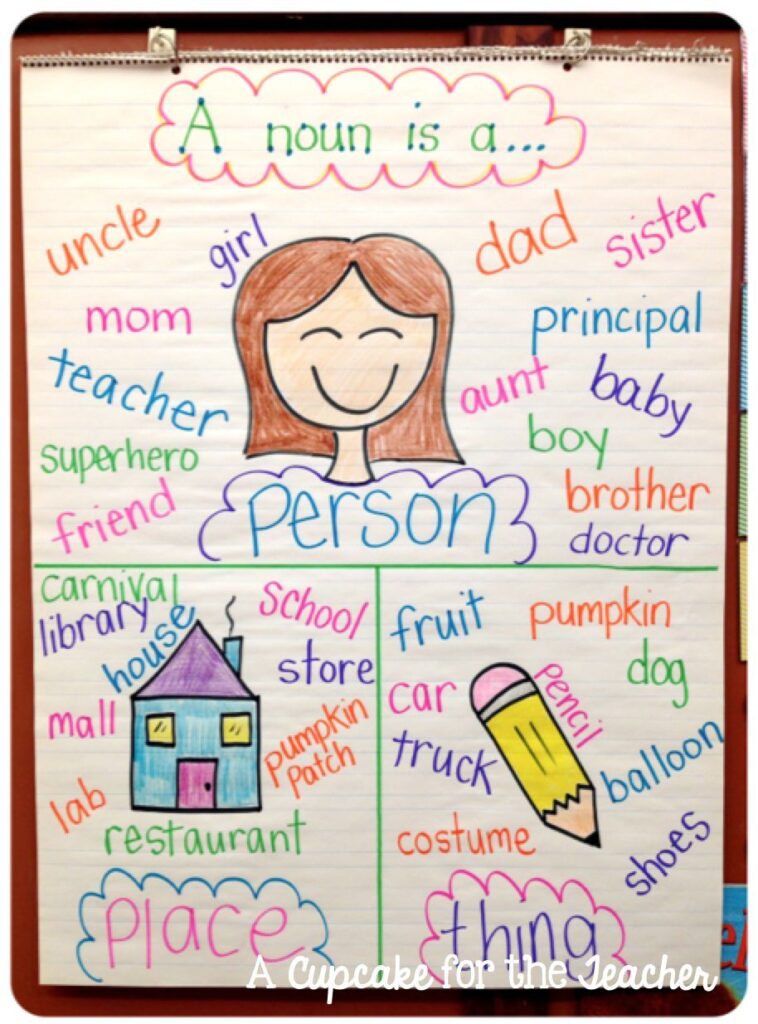
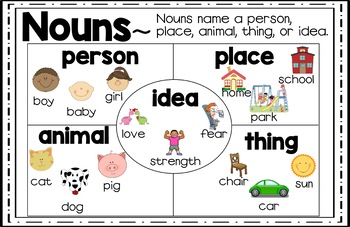
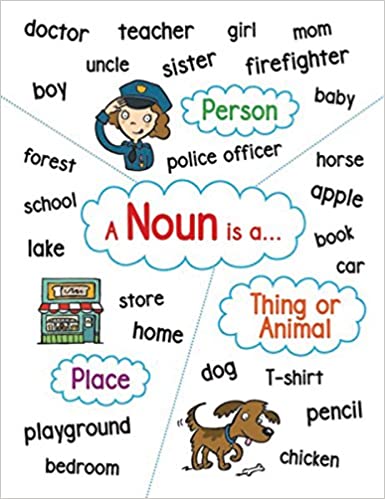
Exercise
Pick out the nouns in the following sentences.
(1) Many students enjoy eating cakes.
(2) Our coach tries to discourage cowardice on the training field.
(3) Dishonesty scares Pauline.
(4) Chief Kola comes from Asaba
(5) Let’s visit the Nile tomorrow.
(6) His sight is failing him badly.
(7) Ade loves English language a lot.
(8) Taiwo is in the class room
(9) The children were playing on the field before the teacher arrived.
(10) The market was full of people.
Kindly answer the questions in the form below. Write out only your answers.
4/6/20
CORRECTION
MODAL VERBS
- There are plenty of tomatoes in the fridge. You—–(mustn’t, needn’t, may not, should not) buy any.
- It’s a hospital. You —-(mustn’t, needn’t, may not, don’t have to) smoke.
- He had been working for more than 11 hours. He—-(must, need, had better, mustn’t) be tired after such hard work. He —-(may, should, must, had better)prefer to get some rest.
- I —-(could, might, can, must)speak Arabic fluently when I was a child and we lived in Morocco. But after we moved back to Canada, I had very little exposure to the language and forgot almost everything I knew as a child. Now, I—-(may, can, must, need) just say a few things in the language.
- The teacher said we—-(can, needn’t, must, should) read this book for our own pleasure as it is optional. But we—-(could, need, needn’t, mustn’t) read it if we don’t want to.
- —-(May, Need, Must, Can) you stand on your head for more than a minute? No, I—-(may not, needn’t, can’t).
- If you want to learn to speak English fluently, you—-(could, need, needn’t, mustn’t) to work hard.
- Take an umbrella. It—-(need, should, mustn’t, might) rain later.
- You—-(need, shouldn’t, needn’t, may not ) leave small objects lying around. Such objects—-(need, may, mustn’t, must, ) be swallowed by children.
- People —-(couldn’t, needn’t, mustn’t, may not) walk on grass.
- Drivers —-(could, must, may) stop when the traffic lights are red.
- —-(May, Must, Should, Will)I ask a question? Yes, of course.
- You—- (couldn’t, needn’t, mustn’t, may not) take your umbrella. It is not raining.
- —-(Can, Need, Should, May) you speak Italian? No, I—-(shouldn’t, mustn’t, may not, can’t)
Good morning once again, we are here for another business. Please, get ready for work.
Please, always write your English notes in your English note book. Thank you.
PREPOSITION
Preposition are words used with nouns or noun phrases to show relationships between people or places or things. They may also be used to indicate time or when something happens or happened.
here are some examples

Made from, made of, made out of, made with
Made from
We often use made from when we talk about how something is manufactured:
Plastic is made from oil.
The earliest canoes were made from tree trunks.
Made of
We use made of when we talk about the basic material or qualities of something. It has a meaning similar to ‘composed of’:
She wore a beautiful necklace made of silver.
The door is made of wood
A: What’s this table made of?
B: It’s oak, American white oak.
A: It’s lovely.
Made out of
We usually use made out of when we talk about something that has been changed or transformed from one thing into another:
In the 1970s, it was popular to have candle-holders made out of wine bottles.
They were living in tents made out of old plastic sheets.
Made with
We use made with most often to talk about the ingredients of food and drink:
This dish is made with beef, red peppers and herbs.
Is sushi always made with raw fish or do the Japanese use cooked fish too?
Open to pages 148 and 149 of your NOSEC JSS 1 for more on preposition.
Class work
- Choose the right words: on, at, outside, of, to, for, like, with to fill in the blank spaces a-j on page 150 of your NOSEC text
- Answer Structure: Preposition; questions 1-10 on page 65 of your NOSEC WORKBOOK.
Join us on WhatsApp through this link. Please, when you join, tell us your name, class and school. Thank you.https://chat.whatsapp.com/J62I7lu7v63EjQWIzdIklg
Kindly write your answers in this form below.
Mind you, you are to read your literature texts from home. We are reading two books. They are:
Ogadinma: The Diary of a Housemaid by Chigbo Ugwuoke and Save the African Womb by Nicole Chinelo. Please, tell your friends and make sure you finish reading them before the school resumes.
01/06/2020
Good morning everyone, happy new month, it shall be a month of victory and celebration for us in Jesus’ name. I am happy to have you back on this platform after the weekend.
I’m elated to tell you that I was really impressed with your last class activity. I want more of that. Please, get your writing materials ready for today’s fun. You have a short video of 5:14mins. Thank you.
Join me on WhatsApp through this link. Please, when you join, tell us your name, class and school. Thank you https://chat.whatsapp.com/J62I7lu7v63EjQWIzdIklg
STRUCTURE
VERB
Modal Verbs
In English, the modal verbs are used to express ability, possibility, permission or obligation. Each one of the modal verbs can be used to express one or more of these modalities. They can also be used to form the future tense in English and to make conditional sentences.
Modal verbs are auxiliary verbs (also called helping verbs) like can, will, could, shall, must, would, might, and should. … Modal verbs add meaning to the main verb in a sentence by expressing possibility, ability, permission, or obligation. You must turn in your assignment on time. He might be our next president.
I promise you will also love this, watch it if you can.
Grammar Exercise – Modals
grammer excersise – modals
- There are plenty of tomatoes in the fridge. You—–(mustn’t, needn’t, may not, should not) buy any.
- It’s a hospital. You —-(mustn’t, needn’t, may not, don’t have to) smoke.
- He had been working for more than 11 hours. He—-(must, need, had better, mustn’t) be tired after such hard work. He —-(may, should, must, had better)prefer to get some rest.
- I —-(could, might, can, must)speak Arabic fluently when I was a child and we lived in Morocco. But after we moved back to Canada, I had very little exposure to the language and forgot almost everything I knew as a child. Now, I—-(may, can, must, need) just say a few things in the language.
- The teacher said we—-(can, needn’t, must, should) read this book for our own pleasure as it is optional. But we—-(could, need, needn’t, mustn’t) read it if we don’t want to.
- —-(May, Need, Must, Can) you stand on your head for more than a minute? No, I—-(may not, needn’t, can’t).
- If you want to learn to speak English fluently, you—-(could, need, needn’t, mustn’t) to work hard.
- Take an umbrella. It—-(need, should, mustn’t, might) rain later.
- You—-(need, shouldn’t, needn’t, may not ) leave small objects lying around. Such objects—-(need, may, mustn’t, must, ) be swallowed by children.
- People —-(couldn’t, needn’t, mustn’t, may not) walk on grass.
- Drivers —-(could, must, may) stop when the traffic lights are red.
- —-(May, Must, Should, Will)I ask a question? Yes, of course.
- You—- (couldn’t, needn’t, mustn’t, may not) take your umbrella. It is not raining.
- —-(Can, Need, Should, May) you speak Italian? No, I—-(shouldn’t, mustn’t, may not, can’t)
Kindly answer this in the form below, writing out only your answers
No Fields Found.28/05/2020
Hi, good morning class. I want to believe you had a beautiful children’s day. If yes especially, I’ll love you to give Mum and Dad a beautiful treat in return… probably by doing a surprise cleaning up for them. If not, try it too for a better one next time, they really deserve it. I bet it with you, they will love it and you will thank me later. Cheers.
Join me on WhatsApp through this link. Please, when you join, tell us your name, class and school. Thank you https://chat.whatsapp.com/J62I7lu7v63EjQWIzdIklg
This group chat is only for asking questions and class interractions. Please, only for those on this forum.
CORRECTION for the last lesson
1. DUROPCTS PRODUCTS
2. LATECCINUS INCULCATES
3. UIACCRL CRUCIAL
4. OSSSFPREOIN PROFESSIONS
5. IIMVOTNAGT MOTIVATING
6. SOLAG GOALS
7. UCDEAOINT EDUCATION
8. TTYRRIEA TERTIARY
9. NNOOUREDCP. PRONOUNCED
10. RESCHAET TEACHERS
11. MSSOOALRC CLASSROOM
12. STRMNIIES MINISTERS
13. LFDIUAEQI QUALIFIED
14. DEYOLPME EMPLOYED
15. SERIALAS SALARIES
Please, score yourself. if you scored 10 out of 15, I give you a thumb up.
IDIOM
Idiom is an expression that does not mean what the word say but has a different meaning of it’s own.
Watch this 6mins video below careful and make sure you master them. Thank you.
Never mind if you are unable to watch this video, please, read this:
- The lights are on, but nobody’s home Meaning: This person isn’t very smart. Example: I didn’t know she is so stupid! The lights are on, but nobody’s home.
- When pigs fly Meaning: Never! Example: Bill will give your books back when pigs fly, so forget about them.
- To pig out Meaning: Imagine how pigs eat – they eat a lot, and they eat quickly, right? So this idiom in English means “to eat a lot at one time; to overeat.” Example: She was pigging out on ice cream and sobbing when I came home.
- As Cool As a Cucumber Meaning: very calm, especially when this is surprising Example: She walked in as cool as a cucumber, as if nothing had happened.
- Hold Your Horses Meaning: wait! stop and think! Example: Just hold your horses, Bill! Let’s think about this for a moment.
- Kick the Bucket Meaning: a euphemism meaning “to die” Example: Charlie finally kicked the bucket. He had cancer, you know.
- Everything but the kitchen sink Meaning: This idiom in English means “everything that you can think of; every possible thing” in a given situation. Example: He used to order everything but the kitchen sink when he went out to dinner and then pig out alone.
- Put a sock in it Meaning: This is a rather old (and outdated) idiom that means “be quiet; stop talking.” It is a rude way to tell someone to be quiet. Example: You’ve been talking non-stop for an hour. Put a sock in it!
- To have Van Gogh’s ear for music Meaning: unable to understand and differentiate musical tones Example: Please, don’t let Betty sing again! She has Van Gogh’s ear for music.
- To have a cast iron stomach Meaning: able to eat anything without suffering bad consequences Example: Sam has a cast iron stomach! He’s eaten two big burgers, a dozen hot chicken wings, and a huge container of ice cream, and he’s feeling great!
- To drink like a fish Meaning: to habitually drink a lot of alcohol Example: I don’t know what to do. For the past six months, he’s been drinking like a fish.
- Use your loaf Meaning: A loaf is a quantity of bread that is shaped into a certain form and then baked. But in this idiom, the word “loaf” refers to a person’s head – in other words, the brain. So “use your loaf” means to use your brain; to think about something. Example: Oh, Jim…When will you start to use your loaf, for God’s sake?
- Finger-lickin’ good Meaning: so tasty you want to lick your fingers after eating Example: Her Christmas turkey is always finger-lickin’ good.
- Until you’re blue in the face Meaning: until you’re completely exhausted. Example: You can tell her to clean her room until you are blue in the face, but she won’t do it.
- Storm in a Teacup (u.k) Meaning: a lot of unnecessary anger and worry about a matter that is not important. Example: My brother and sister had a big argument about the television yesterday, but it was just a storm in a teacup.
- Bob’s Your Uncle Meaning: And that’s all there is to it; there you have it Example: Just tell them you’re a friend of mine and, Bob’s your uncle, you’ll get the job.
- Head In The Clouds Meaning: living in a fantasy, dreaming. Example: He’s not right for this role, he has his head in the clouds.
- Dead As A Doornail Meaning: completely dead. Example: The fox in the road was as dead as a doornail.
- A Piece Of Cake (Food idioms) Meaning: something very easy to do. Example: The test was a piece of cake.
- Heart In Your Mouth Meaning: feeling nervous or scared. Example: My heart’s in my mouth ever time it rings
These are more pictures to also illustate IDIOM
CLASS ACTIVITY
- Write any 5 idioms of your own. (Note that they are different from ordinary statements)
- Make a colourful illustration of any two idioms of your own.
Kindly provide your answers and picture(s) in these forms provided below, thank you.
No Fields Found.16 Comments
SORT BY
25/05/20
CORRECTION OF THE LAST LESSON
- a) Honest. b) well-behaved, Beautiful. c) good. d) drowsy. e) unserious, good
- The adjectives are:
well, happy, confident, forward, little, old, black, heavy, white, left.
Today’s topic _ WORD POWER
TEACHING
Good morning class. Today, we will have to arrange the letters below to have the words related to teaching written in red italics on page 134 of your English text. Study the topic on the page and rearrange the letters. (Clues > the red letters)
1. DUROPCTS
2. LATECCINUS
3. UIACCRL
4. OSSSFPREOIN
5. IIMVOTNAGT
6. SOLAG
7. UCDEAOINT
8. TTYRRIEA
9. NNOOUREDCP
10. RESCHAET
11. MSSOOALRC
12. STRMNIIES
13. LFDIUAEQI
14. DEYOLPME
15. SERIALAS
More clues…
salaries, classroom, employed, teachers, , ministers, and qualified.
Good luck!
Kindly submit your answers in this form below
No Fields Found.21/ 5/ 2020
ENGLISH LANGUAGE JSS 1
ADJECTIVE
Good day class, I hope you enjoyed your last class. By the grace of God, we shall be having revision on a new topic; ADJECTIVE but before we start, this is the correction of the last class work.
CORRECTION
Reading Comprehension: pages 138- 139, NOSEC JSS1
Reading to Interpret Diagram, Maps and Sketches
Exercise
- The pupils were in the classroom.
- The teacher was teaching English Language
- They were doing English Language.
- The teacher told the pupils to stand
- The boy fell from the bench because he was fast asleep when the other pupils were asked to stand.
- They laughed at him.
- The teacher felt unhappy.
Score yourself all over 7marks. If you scored 5marks and above, you have done well, otherwise, please, challenge yourself next time, thank you.
I’ll like to have your WhatsApp number after your class work, if you have any, thank you. This is mine 08068326168 Mrs. Opatoki from Bodija.
Now today’s lesson
You can continue the lesson for a better explanation from your NOSEC textbook on pages 131-133
kindly submit your answers in the form below thank you.
Welcome back everyone; I hope you are still enjoying your unending holiday. We thank God for the privilege He has given us to witness today hale and hearty. May we never recount any loss to this noisome pestilence in Jesus’ name.
Please, stay safe all the time, always do the needful and avoid the unnecessary at this period. We shall all come out of this trying period singing, dancing and rejoicing.
At this juncture, feel free to ask questions.
COMPREHENSION
Behavioural Objectives
By the end of the lesson, the students are expected to be able to:
- explain meanings of diagrams, maps and sketches.
- write down information gotten from pictures
- list answers to the related questions asked.
READ TO INTERPRET DIAGRAMS, MAP AND SKETCHES.
This comprehension passage is meant to help you understand diagrams and sketches in order to write down the information in form of a passage.
Study the comprehension passage on pages 138 – 139 and study the diagrams as well, then answer questions 1-7 on page 138.
Feel free to discuss your observations.
Kindly answer the questions above in the form below;
